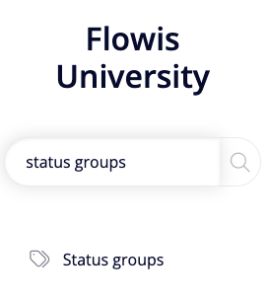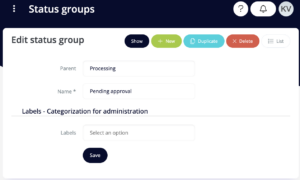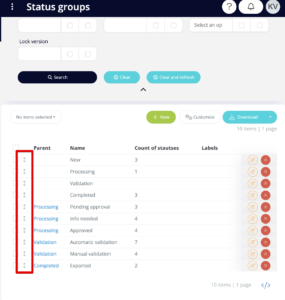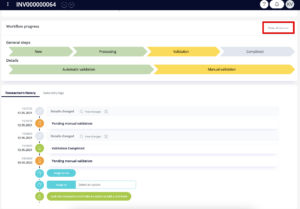
Status Groups are made to categorize Statuses into separate units. It is not a mandatory setup – you can fully use Flowis without setting up any of them. However, if the process is complex and the amount of used Statuses is high, we recommend grouping them into Status Groups to make the Transaction’s history clearer and neat for the Users – because once you do so, you can display a workflow progress diagram in the Transaction’s detail.
Setting up a new Status Group is very simple – the only mandatory field is the Name of the Status Group. Optionally you can also fill in the Parent Status Group if the structure of Statuses is very complex and needs hierarchy.

After creating all the Status Groups you need, it is important to put them in order by dragging & dropping them to the correct position using the arrows on the left side of the rows. The order you set up here will be used in the workflow progress diagram.

As we said at the beginning, Status Groups enable you to display workflow progress in the Transaction’s detail (to do so, you need to set up the details in Transaction Type. See our article about Transaction Types to learn more about this topic.). All the actions will be divided among Status Groups. You will initially see only the statuses belonging to the Status Group that corresponds to the current Transaction status. If you want to see the whole history of actions, you can do so by clicking on “Show all statuses”.
